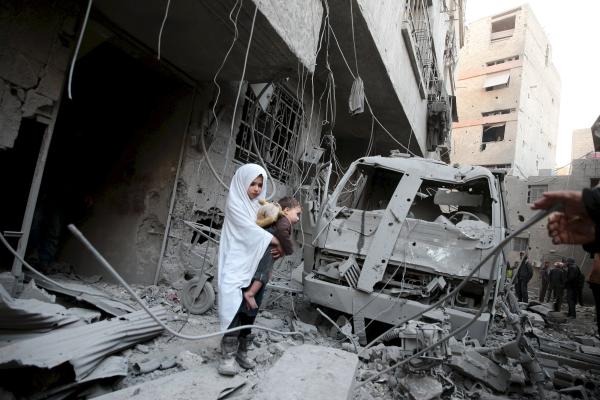BEIRUT- The Saudi-backed Syrian opposition ruled out even indirect negotiations with Damascus before steps including a halt to Russian air strikes, contradicting U.S. Secretary of State John Kerry’s insistence that talks will begin next week.
With the five-year-old Syrian war showing no signs of ending, it looks increasingly uncertain that peace talks will begin as planned on Jan. 25 in Geneva, partly because of a dispute over the composition of the opposition delegation.
Peace efforts face huge underlying challenges, among them disagreements over President Bashar al-Assad’s future and tensions between Saudi Arabia and Iran. Russia on Friday denied a report that President Vladimir Putin had asked Assad to step down last year.
The Syrian government has said it is ready to take part in the Geneva talks on time. The office of U.N. envoy Staffan de Mistura said he was still aiming “at rolling out the talks” on Jan. 25, and would be “assessing progress over the weekend”.
Russia said the talks could be delayed until Jan. 27 or 28 because of the disagreement over who would represent the opposition.
George Sabra, a senior opposition official, said the obstacles to the talks were still there, reiterating demands for the lifting of blockades on populated areas and the release of detainees, measures set out in a Dec. 18 Security Council resolution that endorsed the peace process.
“There must be a halt to the bombardment of civilians by Russian planes, and sieges of blockaded areas must be lifted,” said Sabra, who was this week named as a senior member of the opposition delegation to any talks. “The form of the talks does not concern us, but the conditions must be appropriate for the negotiations,” he told Reuters.
Sabra’s opposition council, the High Negotiations Committee (HNC), was formed in Saudi Arabia last month. It groups Assad’s political and armed opponents, including rebel factions fighting Damascus in western Syria.
The west is the main theatre of the war between rebels and Damascus, whose military position has been bolstered since September by Russian warplanes and Iranian ground forces.
Russian warplanes continued to bomb many parts of western and northern Syria on Friday, particularly Latakia province, where the government is pressing an offensive against rebels, the Syrian Observatory for Human Rights reported.
Pro-government forces captured a dam 10 km (6 miles) from the town of Salma, seized last week in one of the most significant gains since Russia intervened. “They’ve tightened their stranglehold on (rebel) fighters in the Latakia countryside,” Observatory director Rami Abdulrahman said.

